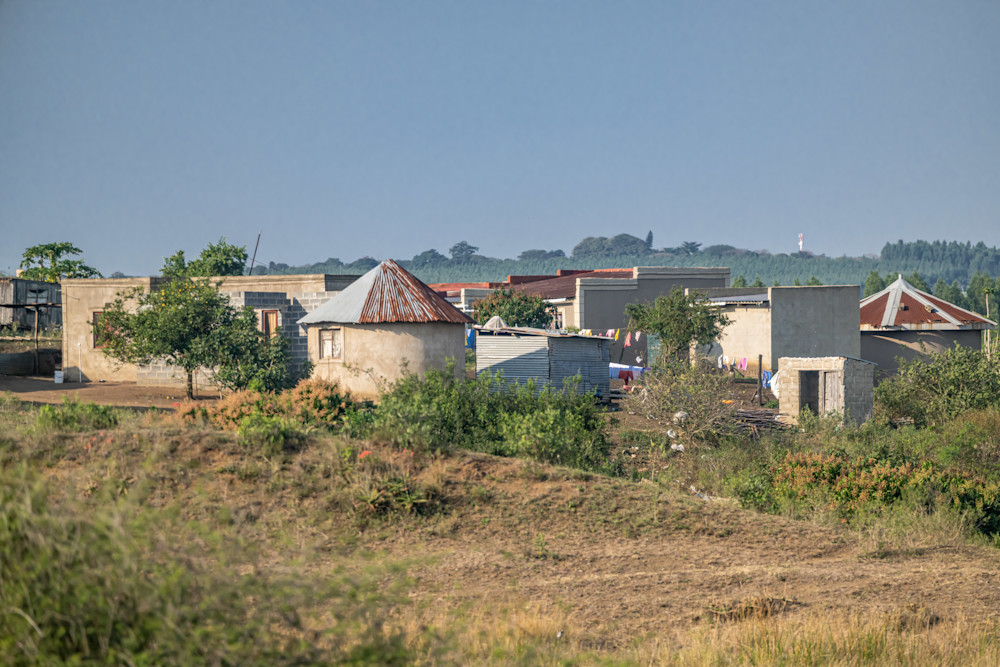Along the scenic roadsides of KwaZulu-Natal, a Zulu village comes into view, nestled amidst the rolling hills and vibrant landscapes. The village embodies the rich cultural tapestry of the Zulu people, showcasing a harmonious blend of tradition and the natural beauty that defines the region.
Traditional thatched huts, or rondavels, dot the landscape, their conical roofs a testament to centuries-old building techniques. The thatch, woven from local grasses, harmonizes with the earthy tones of the surroundings. Each rondavel tells a story, adorned with vibrant patterns and colors that convey the artistic heritage of the Zulu community.
The roadside is lined with women in brightly colored traditional attire, engaging in daily activities. Some may be tending to small vegetable gardens, while others sit in communal circles, sharing stories and laughter. The air is infused with the enticing aroma of traditional Zulu cuisine, as pots simmer over open fires, creating a sensory experience that invites passersby to partake in the cultural richness of the village.
Children, dressed in vibrant school uniforms, play alongside the road, their laughter echoing against the backdrop of the hills. Livestock graze freely in the open spaces, completing the pastoral scene that unfolds before travelers.
The rhythm of life in the Zulu village is marked by a connection to the land, community, and the traditions passed down through generations. As the road winds through this picturesque setting, the Zulu village stands as a living testament to the resilience and cultural vibrancy of the people who call KwaZulu-Natal home. It's a glimpse into the soul of South Africa, where tradition and modernity coexist in a delicate dance along the roadside.
















